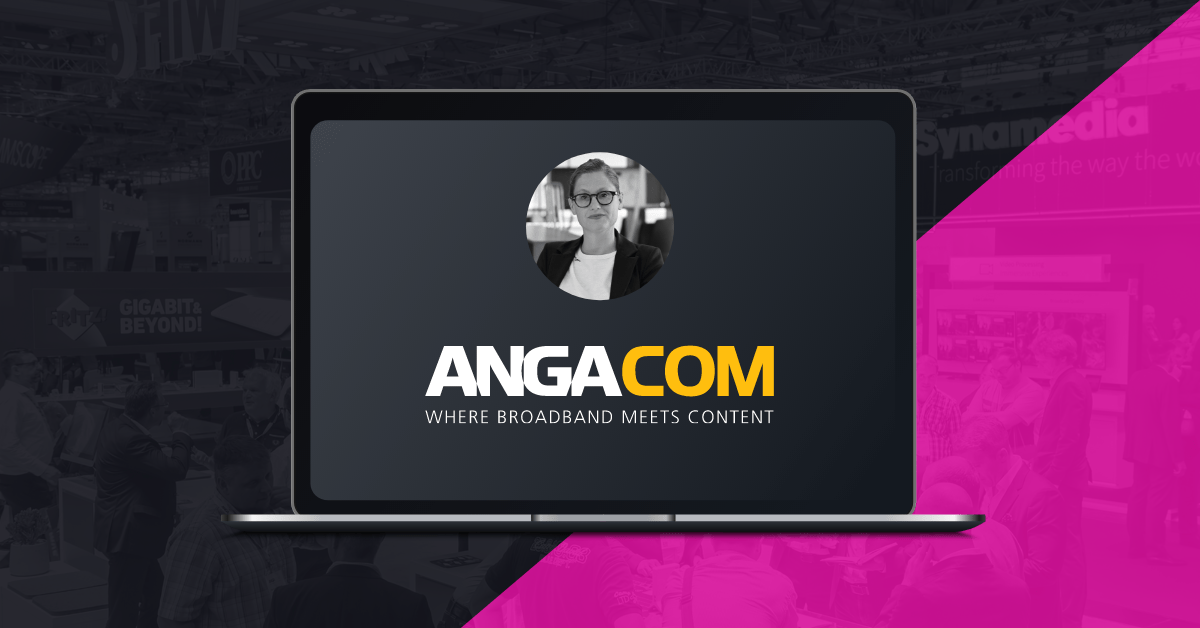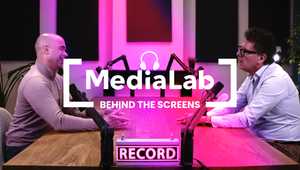Last week from June 8-10, 2021, the ANGA COM DIGITAL took place. It was a virtual three-day event format of ANGA COM – Exhibition and Conference for Broadband, Television & Online that usually takes place in Cologne, Germany. The programme included 45 panels with 180 international speakers. Our colleague Anne Hufnagel attended ANGA and made some key points. Anne found the panels on the technology of Media over IP, the media summit on how many streaming platforms the market can take and the discussion about which content will also work linearly in the future exciting.
As far as technology is concerned, all speakers agreed that German broadcasters are undergoing a significant technological transformation process. Broadcasters are confronted with the challenge of further combining traditional and IP playout paths.
“IPTV is here to stay”, said Dr Nikals Brambring from Zattoo. And CBC's Andre Prahl also emphasised that RTL's new claim is "the streaming broadcaster". Wolfgang Wagner, Director Production and Technology at WDR, pointed out that a sporting event such as the European Championship is usually still broadcast via the traditional broadcast channels, but in the end, it is the viewer who decides how and where he wants to watch the football event.
Wolfgang Wagner also assumed that internet use at ARD will increase by up to 45% in the future. Costs will rise accordingly since ARD is currently still dependent on the service provider Akamai Technologies, ARD's CDN operator. Wagner also unveiled that ARD is considering building its own infrastructure to counteract the high costs. Joachim Hengge from Akamai, who was also present on the panel, immediately conceded that they were willing to negotiate.
5G is expected to be another game-changer. It will introduce another pillar in broadband and is a kind of extension of the internet, said Akamai's Joachim Hengge. In production, for example, a camera will then be able to play out directly via 5G.
At the media summit "How many streaming platforms can the market take" the focus was also on the German market. Of course, the US giants are getting bigger and bigger, as was recently shown with Discovery and Warner or Amazon and MGM. However, the German players, such as Henning Tewes of RTL or Henrik Pabst of ProSiebenSat1, were quite confident about the future of their channels. Henrik Pabst said that a household would not be able to afford up to seven streaming services. But ProSieben sees itself very well positioned, especially with its strong linear offer, which they will then extend into digital. RTL's Henning Tewes is also pleased that viewers are more willing than ever to pay for content. And that there is still plenty of room and opportunities for further digital growth.
At the next panel, on how content will continue to work in linear form in the future, Claus Strunz, programme director of the new BILD channel, pointed out that linear would always remain fashionable. Life is linear, and people need linear structures. Therefore, the upcoming BILD channel will rely on a lot of live television and on curating in real-time. Sports 1's Matthias Kirschenhofer said that a show does not necessarily have to be live, but the special linear experience must be simultaneous and shared. Through communication via social media channels, a show could then be experienced as if in real-time. There is a lot of dynamism in the market. Especially sports are, of course, watched live. The NBA, for example, offers that you can only watch the last 15 minutes of the game.
Alberto Horta from Tele 5 spoke about the triad of linear TV. In his opinion, the performance values of TV are unbeaten, and TV is the commodity medium in the household. The second element of the triad is the needs of the viewers. People need anchors, structure and broadcast slots. And the third element Horta mentions is the heterogeneity of the topics that are in demand. Furthermore, he points out that almost 60% of German citizens are over 40 and TV therefore still plays a significant role. All the speakers on this panel agreed on that linear television was not dead.
All in all, Anne found ANGA COM DIGITAL a very insightful market and very much looks forward to the next ANGA COM in May 2022, that will then again take place in Cologne.
If you have any questions, feel free to contact our colleague Anne Hufnagel:




